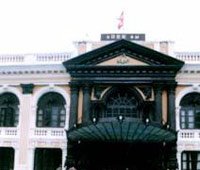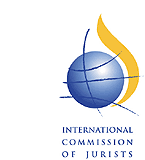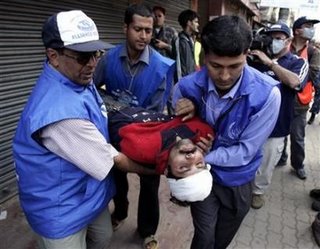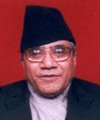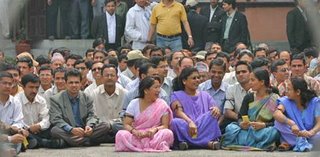PM Koirala administered oath of office
His Majesty King Gyanendra administered oath of office and secrecy to the newly appointed Prime Minister amidst a ceremony at the Narayanhiti Royal Palace Sunday morning.
84 years old Koirala entered the Palace at 10 a.m. and left in about 20 minutes. The oath ceremony of the newly appointed PM scheduled on
 Friday had been delayed due to the ill health of Koirala.
Friday had been delayed due to the ill health of Koirala.Mainwhile Alliance source said the number of ministers would not exceed 21. Sources said at least six ministers each will be drawn from the NC and the CPN-UML, three from the Nepali Congress (Democratic), one from the Nepal Sadbhavana Party (Anandi) and two from civil society.
The Nepal Workers’ and Peasants’ Party and Janamorcha Nepal are learnt to have decided to stay away from joining the all-party government. Sources said they want to join an interim government of which the Maoists are also a part.
The sources said NC general secretary Ramchandra Poudel may be asked to look after either Physical Planning and Works or Local Development, joint general secretary Dr Ram Sharan Mahat Finance, Chakra Prasad Bastola Foreign Affairs, Mahesh Archarya Defence, Mahantha Thakur Law, Justice and Parliamentary Affairs, while Tirtha Ram Dangol was likely to be appointed Health and Population minister.
UML standing committee member K P Sharma Oli may become deputy-prime minister in addition to holding Home portfolio, Pradip Nepal may be given either Information and Communication or Water Resources ministry, Rajendra Pandey Local Development, Pradip Gyawali Civil Aviation, Tourism and Culture, Urmila Aryal Women, Children and Social Welfare, while Prof Mangal Siddhi Manandhar may be given the charge of Industry, Commerce and Supplies Ministry.
NC-D general secretaries Prakash Man Singh and Bimalendra Nidhi may be given the charge of Labour and Transport Management and Education and Sport, respectively, while Dr Prakash Sharan Mahat is likely to be Environment, Science and Technology Minister. NSP general secretary Hridayesh Tripathi is likely to take the responsibility of Forest and Soil Conservation ministry.
Two ministerial berths for civil society were yet to be finalised. Sources said alliance is considering former speaker Daman Nath Dhungana, Dr Devenrda Raj Pandey, senior journalist Kanak Mani Dixit and Dr Sundar Mani Dixit for the remaining portfolios.

